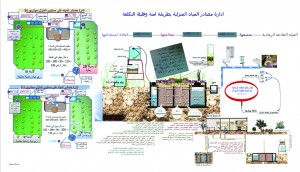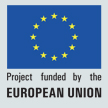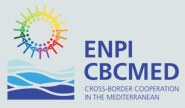Challenges and experiences in the field of reclamation of treated waste-water in Palestine
Workshop schedule_March 31 2013
Challenges and experiences in the field of reclamation of treated wastewater in Palestine workshop
Within the framework of the SWMED and Austrian projects PWA try to increase capacity building and
institutional for the integrated management of water and sanitation services in Palestinian
communities in the West Bank” and SWMED project in collaboration with the Institute of Water and
Environmental Studies at the universities, and the Palestinian Water Authority, Eng. Leen Arafat as
researcher in Palestinian Water Authority organized on Wednesday, 03/04/2013, a workshop opened
by Dr. Marwan Haddad, director of the Institute for Water and Environmental Studies at the
university, and Engineer Hazem Katana, a representative for the Palestinian Water Authority, Dr.
Abdel Fattah Hassan, a lecturer in the Faculty of Engineering at the university, and Engineer Leen
Arafat participated in a workshop., as well as representatives from various institutions dealing with
water and environmental affairs in also the local councils in Nablus governorate, the workshop was
facilitated by Dr. Noman myzid.
Workshop focus on the following points:
1. Identify main wastewater treatment facilities at the Palestinian communities.
2. Identify the main obstacles behind the political and economic challenges that affect the
subject of waste water desalination, particularly Social and the people acceptability for the
idea of re-use of desalinated water.
3. Intensify efforts to improve environmental protection in Palestine, and support young
projects, particularly graduate students in the field of environment.
4. Important to focus on laws and standards for wastewater treatment and reuse, and practical
applications and experiences of wastewater reuse in agriculture, as well as to discuss the
social acceptance of re-treated wastewater in agriculture.
5. Technologies in the field that save water such as hydroponics using treated wastewater. this e
operation and requirements of this type of agriculture and its success in growing plants like
strawberries.
Recommendations were as follows:
1. Capacity building and strengthening of institutions concerned with re-use of treated
wastewater And that would be through.
2. Improve cooperation between the bodies and the parties concerned to restore
agricultural use.
3. Financing sewer projects, and wastewater treatment.
4. Introduction of re-use in the overall strategies for the management of water
resources.
5. Public awareness.
Expected results:
At the end of the workshop the audience stressed the need to increase community
awareness about the wastewater treatment processes and re-used as a new source of water
sources in Palestine.



